The Mighty Columbia
Aug 1, 2024
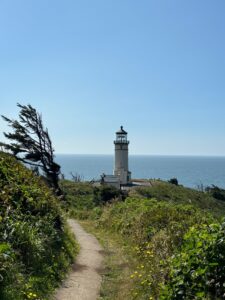
Cape Disappointment Light House, Washington
I linger, staring out to sea from the bluffs above Cape Disappointment, Washington. The Mighty Columbia River flows past the North and South Jetties as its tumultuous waters mix with the Pacific Ocean and move out past the bar. The contrast of a bluebird sky, the shoreline’s rhythmic lullaby, and the Pacific Ocean gently rocking is not lost on me.
Gazing at the horizon, I sense my grandfather’s presence and feel his energy. My heart and soul are restless, my mind filled with endless questions. On a day like today, it’s hard to imagine the chaos and destruction this mighty river is capable of. I know. My grandfather, Herbert Schiewe, logger man in logging season and fisherman in fishing season, faced its full majesty in February of 1947 when an unforeseen Northwester headed toward the Columbia, capsizing his boat, the Rose Ann, and took his life and those of his crew. Neither the boat, nor the men were ever found.
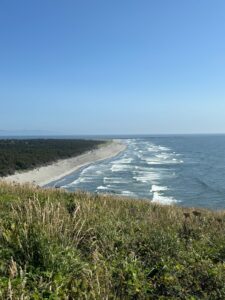
Shoreline, North and South Jetty of the Bar, Mouth of the Columbia River
Even though I was yet to be born, I remain haunted by this memory.
Looking at the mighty river rolling along is a powerful experience. The Columbia River is the largest river in the Pacific Northwest, originating in the Rockies of British Columbia, Canada, traveling 1,243 miles through Washington and Oregon to the Pacific Ocean. It drains more water into the ocean than any river in North or South America. Though Native Americans navigated this river for many generations, in recent history there is evidence that Japanese and Spanish sailors knew of this river long before the British and American explorers arrived.
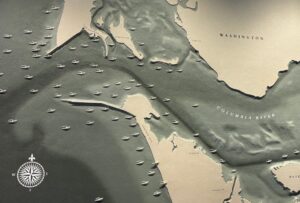
Map of shipwrecks in “Graveyard of the Pacific”
The mouth of the river is vast and often referred to as the “Graveyard of the Pacific.” The bar is 3 miles wide and 6 miles long, so when crossing, it can be treacherous given the robust river currents, fluctuating sand bars, strong tides, and shifting winds. Since 1792, it’s estimated there have been over 2,000 large shipwrecks with hundreds of lives lost, my grandfather being one of those souls.
I grew up knowing this family lore, once mythic in proportion when I was a child. As an adult, I have been fortunate to have my Uncle Ray, captain of his own boat, the Time Out, take me fishing on the Willamette and Columbia Rivers. Though anxious at first with my mind focused on my grandfather’s fate, I cautiously tried to make peace. Over time and through confidence in Uncle Ray’s lifetime of experience on these waters, I’ve come to enjoy fishing for salmon, even venturing out past the bar just as Grandpa Schiewe once did. It’s in my DNA. However, it was only while researching and writing about this tragedy in The Dutchman and Portland’s Finest Rose that I was able to process the event and understand how it impacted my grandmother and my mother. There is no magic resolution when tragedy strikes a family, and though endeavoring to understand the “how” helps, it doesn’t answer the “why.”
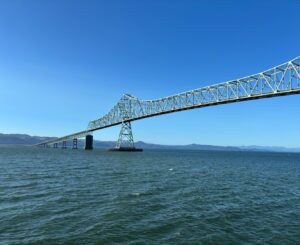
Columbia River,
Astoria, Oregon
Yet I stand, peering out at the immense expanse of calm sea. A pod of whales surface, spewing plumes of water into the air as they journey north to their summer feeding grounds. The circle of life rolls on. A sense of peace gently embraces me on a soft breeze, and I offer my thought, You will always be there, Grandpa, one with the sea, and I will always think of you when I stand here looking out past the bar of the Mighty Columbia.
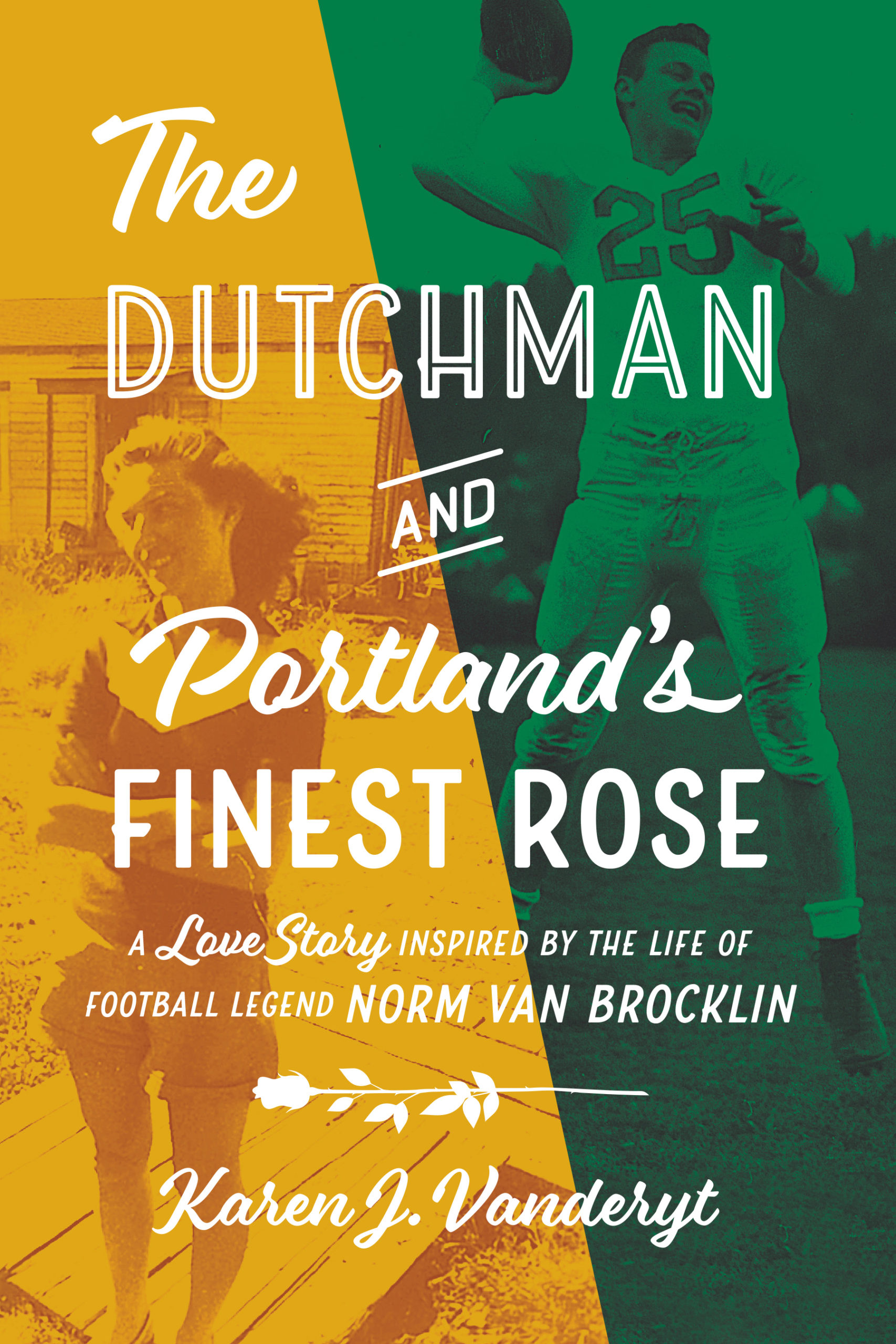
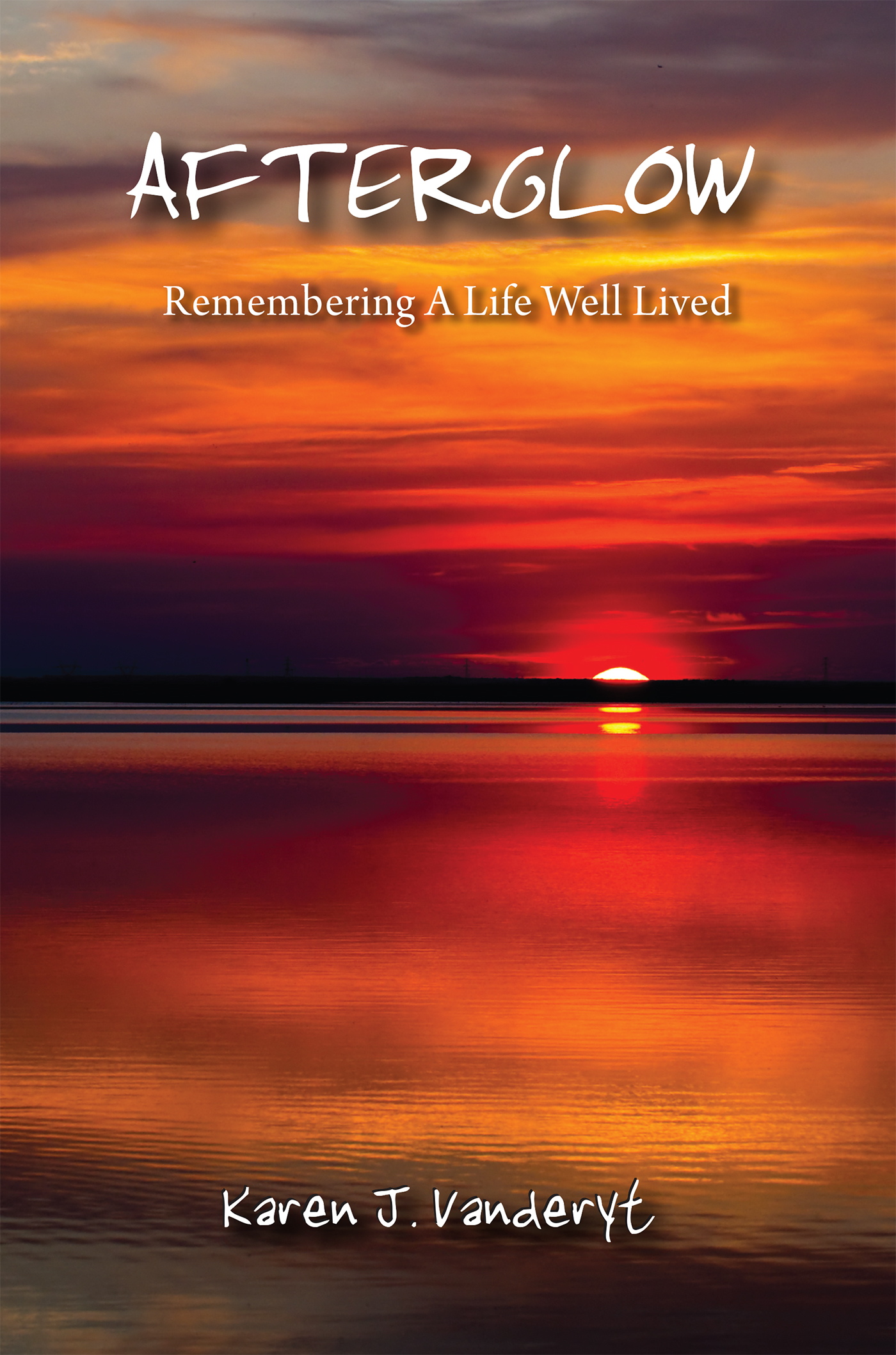
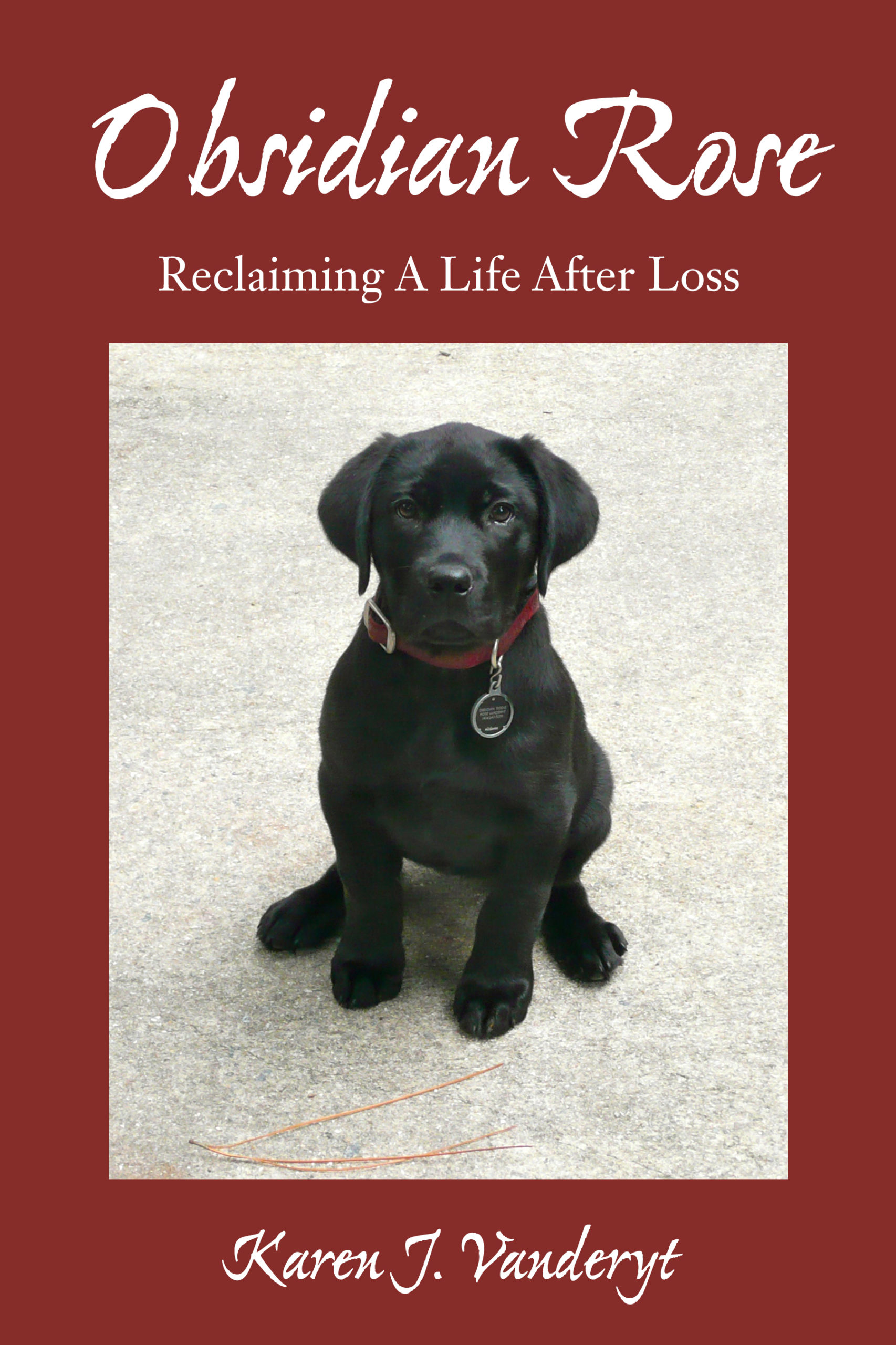
Recent Comments